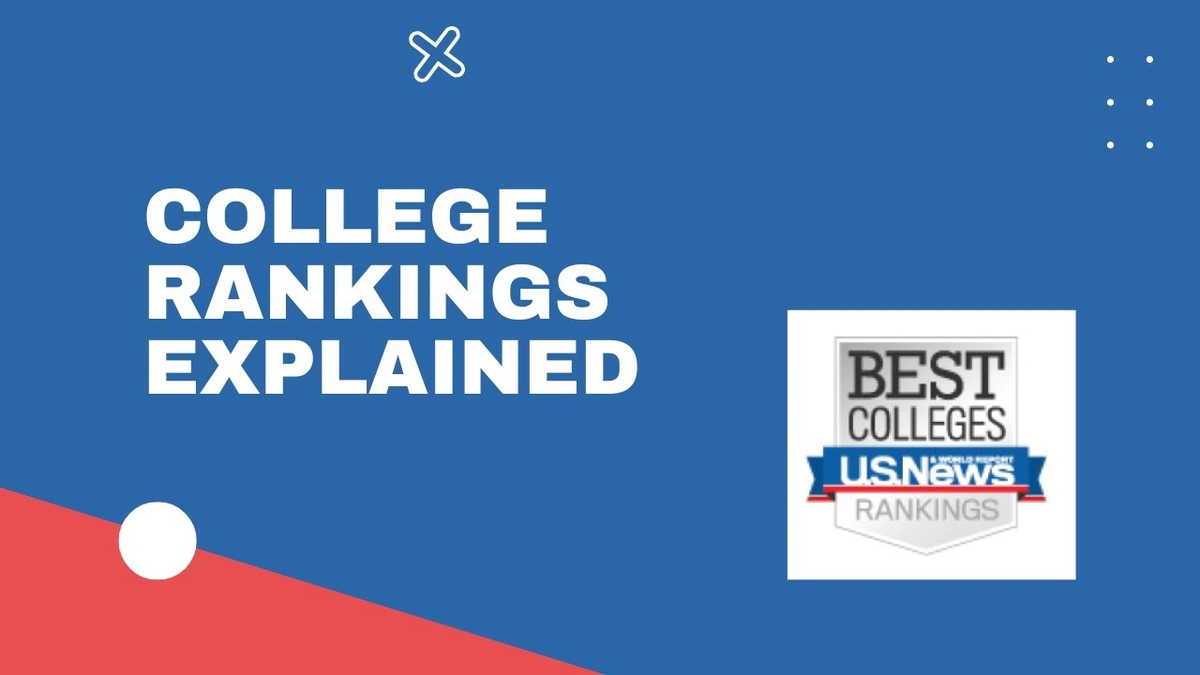The US News & World Report college rankings . They’re like the Super Bowl of higher education, right? Every fall, prospective students, parents, and even university presidents hold their breath as the list drops. But here’s the thing: these rankings are so much more than just a number. Let’s be honest they can dictate reputations, influence donations, and even affect property values in college towns. But are they the be-all and end-all of choosing the right school? That’s what we’re going to dive into.
Why the Rankings Obsession? It’s More Than Just Bragging Rights

So, why do these rankings hold so much weight? It’s partially a self-fulfilling prophecy. A high ranking attracts more applications from high-achieving students, which in turn boosts the school’s stats, further solidifying its ranking. But it runs deeper than that. People crave simplicity. Faced with thousands of colleges, the US News college rankings offer a seemingly easy way to compare them. It’s a shortcut, a perceived guarantee of quality. But like any shortcut, it can lead you astray if you don’t know what you’re doing. And let’s not forget the prestige factor. For some, attending a top-ranked school is a status symbol, a validation of their hard work. This is often tied to perceived return on investment .
But the actual ranking methodology is complex, and frequently shifts. These changes can result in dramatic changes from year to year. According tothe U.S. News website, the rankings are based on factors like graduation rates, faculty resources, and expert opinion. These factors are weighted differently, and the weights themselves are a source of constant debate.
Beyond the Numbers | Finding the Right Fit
Here’s the critical question: do these rankings actually help you find the right college for you? Not necessarily. What fascinates me is how much emphasis is placed on prestige versus personal fit. A top-ranked school might have incredible resources, but if you’re a hands-on learner who thrives in small classes, you might be miserable in a massive lecture hall. I initially thought this was straightforward, but then I realized that the rankings, while helpful, should be just one piece of the puzzle.
Think about your learning style, your career goals, and your personal values. Do you want a vibrant campus life or a quiet, academic environment? Do you prefer a liberal arts education or a specialized program? These are the questions that truly matter. Don’t just chase a number; chase your aspirations. You might even consider looking at niche rankings that focus on specific programs or student demographics to evaluate university reputation . Consider all options.
Gaming the System | The Dark Side of Rankings
Let’s be honest: some colleges actively try to game the system to boost their rankings. How? By manipulating data, focusing on metrics that are easily improved, and even incentivizing students to apply (even if they’re not a good fit) to increase selectivity. As per the guidelines mentioned in the information bulletin, colleges are expected to accurately report their data, but the temptation to inflate numbers is always there. This is where a healthy dose of skepticism comes in handy. Don’t take everything at face value. Do your own research. Dig deeper than the surface level. Look at graduation rates within your major, not just the overall rate. Talk to current students and alumni. Visit the campus if you can.
The Future of College Rankings | What’s Next?
The good news is that there’s a growing awareness of the limitations of the US News & World Report college rankings . More and more people are questioning their validity and seeking alternative ways to evaluate colleges. Some institutions have even stopped submitting data to the ranking organizations entirely, signaling a shift away from the rankings obsession. What excites me is the potential for more personalized, data-driven tools that focus on individual student outcomes and program quality. Imagine a system that matches students with colleges based on their specific needs and goals, rather than just a generic ranking list. That’s a future worth striving for.
The U.S. News & World Report isn’t the only game in town, of course. There are many other college ranking factors to consider, including cost, location, and specific programs offered. Do your research. Consider factors like student-faculty ratio and the availability of research opportunities.
So, What’s the Takeaway?
The US News college rankings are a starting point, not a finish line. They provide a snapshot, but they don’t tell the whole story. Use them as a tool, but don’t let them dictate your college decision. Focus on finding a school that aligns with your values, your goals, and your learning style. Because at the end of the day, the best college is the one where you can thrive, grow, and become the best version of yourself. Don’t just chase prestige; chase your potential. Remember to check college graduation rates and consider financial aid opportunities .
FAQ | Your Burning Questions Answered
What if I don’t get into a top-ranked school?
It’s not the end of the world! Many excellent colleges aren’t highly ranked. Focus on finding a good fit, not just a prestigious name.
Are community colleges a good option?
Absolutely! They offer affordable education and a pathway to a four-year university.
How much weight should I give to alumni networks?
A strong alumni network can be valuable, but it shouldn’t be the sole deciding factor.
What about online colleges?
Online colleges can be a great option for flexibility, but make sure they’re accredited and reputable.
Can rankings predict future success?
No. Your success depends on your own hard work, skills, and determination, not just the name on your diploma.




